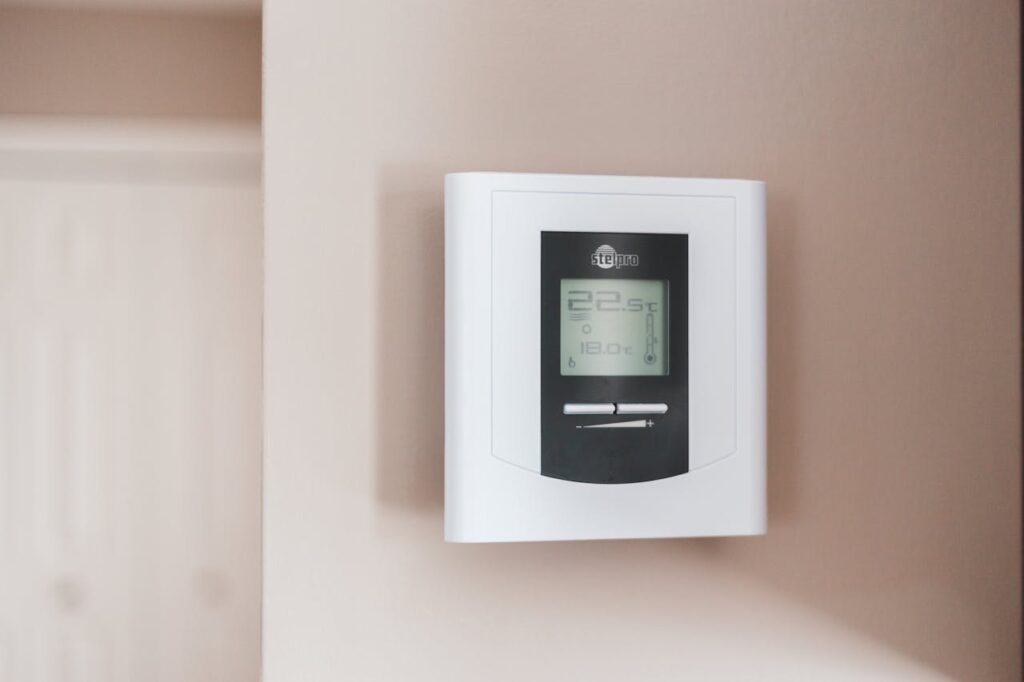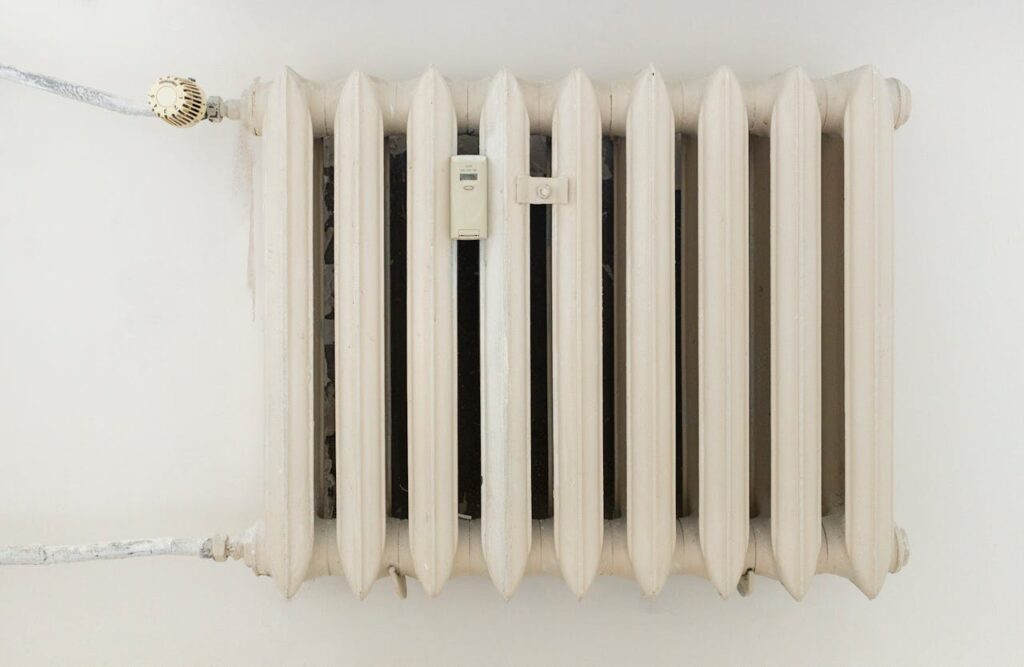As the daffodils begin to bloom and the days grow longer, the unmistakable signs of spring are upon us here in the UK. While the milder weather may tempt you to forget about your central heating system until the leaves start to fall again, spring is actually the perfect time to ensure everything is in working order.
After all, as the old adage goes, “Fix the roof while the sun is shining.” Here are seven central heating issues that you should address now to ensure a cosy home when the chill returns.
1. Unusual Noises From The Boiler
What’s that noise? Do you hear it? A rumbling, spluttering, deeply concerning crescendo coming from the basement? Better go investigate…
Broken. Boiler. Never have two words struck more fear into the careful, conscientious homeowner than these. Nightmare stories about spiralling costs, lengthy repair jobs and cold showers in the depths of winter linger long in the memory, and as such, any unusual sounds or activity from your boiler rings immediate alarm bells.
A boiler should operate with a quiet hum. If yours has started to make banging, whistling, or gurgling noises, it’s trying to tell you something isn’t right. Often, these sounds can indicate air in the system, low water pressure, or limescale build-up. Ignoring these noises can lead to more serious problems, such as a pump failure, which can be both inconvenient and costly to repair.
Simple Check: Listen to your boiler during operation. It should emit a steady, low hum. If you hear banging, whistling, or gurgling, take note of when these sounds occur and their frequency.
The Solution: Call a professional to investigate the cause of the noise. It could be something as simple as air in the system or as complex as a limescale build-up. A certified engineer can diagnose and rectify the issue, often with a system bleed or a chemical flush.

2. Thermostat Issues
Is your thermostat playing up? Perhaps it’s not responding or showing incorrect readings. A malfunctioning thermostat can lead to over or under-heating your home, resulting in discomfort and wasted energy. It’s essential to address this issue promptly, as it can also be a sign of electrical problems within your heating system.
Simple Check: Check if your thermostat responds when you adjust the settings. Also, compare its temperature reading with a separate room thermometer to see if they match.
The Solution: If the thermostat is unresponsive or inaccurate, it may need recalibrating, new batteries, or replacing. A heating engineer can provide a precise diagnosis and solution, ensuring your heating system responds correctly to your adjustments.
Read: How to improve the heating efficiency of your home
3. Leaking & Dripping
Leaks from your boiler or heating system should never be ignored. Not only can they lead to water damage in your home, but they can also be symptomatic of internal issues, such as corrosion or a faulty pressure valve. Small leaks can quickly become big problems, so it’s best to get them fixed while they’re manageable.
Simple Check: Regularly inspect around your boiler and radiators for any signs of water leakage. Even small, consistent drips should be taken seriously.
The Solution: Identify the source of the leak and have it repaired by a professional. Leaks can be a sign of wear and tear or a faulty component, which will need replacing to prevent further damage.
4. Pilot Light Problems
If your boiler’s pilot light is frequently going out or appears yellow instead of blue, it could be a sign of a carbon monoxide leak. This is a serious safety concern, as carbon monoxide is a deadly, odourless gas. Ensure you have a working carbon monoxide detector in your home and get a Gas Safe registered engineer to do a boiler emergency call out immediately.
Simple Check:
Observe the colour of your boiler’s pilot light. It should be a strong blue flame. If it’s yellow or orange, this could indicate incomplete combustion.
The Solution:
A discoloured pilot light requires immediate attention from a Gas Safe registered engineer, as it could be a sign of carbon monoxide. Do not attempt to fix this yourself.
5. Rising Energy Bills
Whilst of course we should caveat this one quite substantially as energy bills have been rising significantly in recent years through no fault of your boilers, if your energy bills are shooting up without a corresponding increase in usage, your central heating system may be losing efficiency. This can be due to a variety of issues, from outdated boilers to poor insulation. Investing in maintenance or upgrades now can save you money in the long run and reduce your carbon footprint.
Simple Check: Compare your current energy bills with those from the same period in previous years. Also, listen to your boiler – if it’s working harder than usual, it may be less efficient.
The Solution: Have a heating engineer conduct a full system inspection. They can recommend actions such as insulating pipes, upgrading your boiler, or installing a more efficient thermostat to help reduce your energy consumption. A smart meter may also help pinpoint the problem.
Read: How you could double your boiler’s lifespan
6. Cold Radiators Or Cold Spots
If you’ve noticed that your radiators aren’t heating up as they should, or there are cold spots even after bleeding them, there could be a build-up of sludge or debris in the system. This can prevent the efficient circulation of hot water. Power flushing the system can clear these blockages and restore your radiators to their full heating glory.
Simple Check: Feel your radiators when the heating is on. They should be evenly warm. If you find cold spots, especially at the bottom, this could indicate sludge build-up.
The Solution: Bleeding your radiators can remove trapped air, which may solve the problem. If cold spots persist, a professional power flush might be necessary to clear out the sludge and get your radiators back to optimal performance.

7. Boiler Pressure Problems
The pressure gauge on your boiler should generally be between 1 and 1.5 bar. If it’s too high or too low, it can affect the performance of your heating system. Low pressure can be caused by leaks or recently bled radiators, while high pressure might be due to overfilling or a fault in the pressure relief valve. Both scenarios warrant a professional inspection and possible maintenance.
Simple Check: Regularly check the pressure gauge on your boiler. It should read between 1 and 1.5 bar. If it’s outside this range, there’s an issue that needs addressing.
The Solution: For low pressure, try repressurising your system according to the manufacturer’s instructions. If the pressure is too high or you’re unsure, call a professional. They can check for leaks or faults and adjust the pressure accordingly.
The Bottom Line
While the allure of spring may draw your attention away from your central heating system, it’s the ideal season to address any issues. By taking action now, you can ensure that your system is efficient, safe, and ready to keep you warm when you need it most. Remember, maintaining your central heating is not just about comfort; it’s about safety and efficiency too. So, don’t put off those repairs; your future self will thank you when the autumn winds start to blow.





